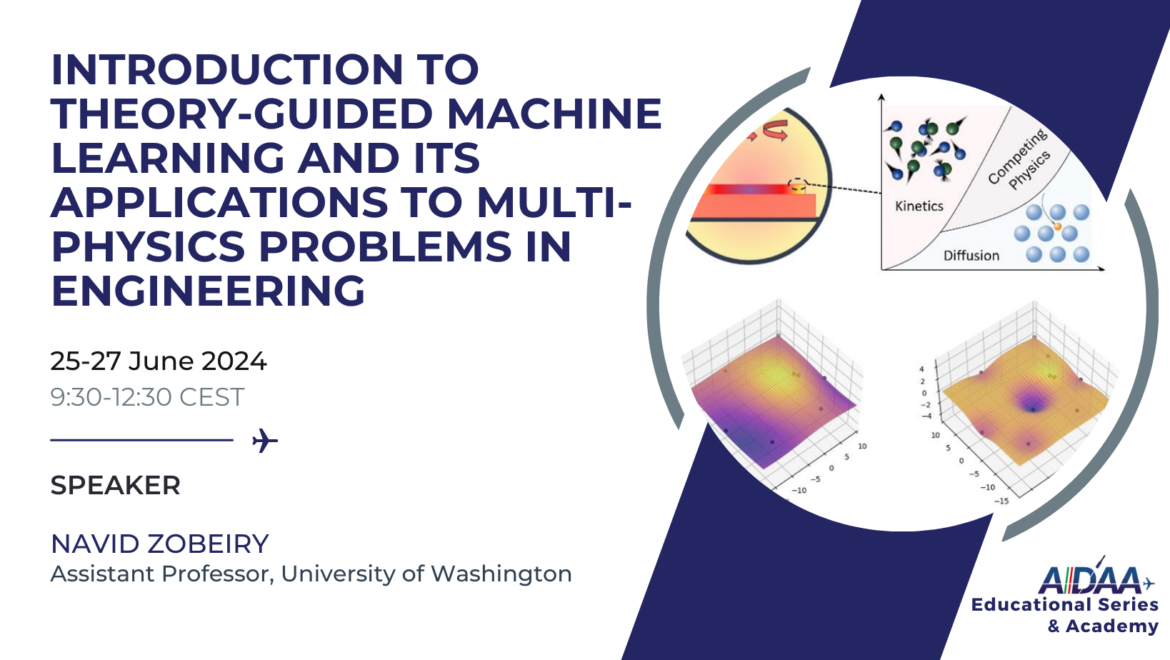
Introduction to Theory-Guided Machine Learning and Its Applications to Multi-Physics Problems in Engineering
25-27 June 2024
Overview and General Information:
Problems of interest in science and engineering are often multi-physics, with complexities stemming from the interactions of various mechanisms, and inherent uncertainties and variabilities. In an industrial setting, we frequently aim to conduct optimization tasks in such complex and high-dimensional domains. For example, the 3D printing of thermoplastics involves heat and mass transfers, where the material undergoes thermo-chemical and thermo-mechanical changes along with several phase transformations. Evaluating the performance of the material under such conditions is challenging due to the complexities of the underlying multi-physics problem, as well as noise/errors in measurements, process uncertainties, and material variabilities. To evaluate or conduct optimization tasks, current practices often rely on methods such as Design of Experiments (DoE), and/or numerical methods.
In the recent decade, the application of data-driven and machine learning (ML) methods has also been explored with varying degrees of success. However, ML methods have been shown to suffer from a variety of shortcomings, including brittleness outside of their training zones. More recently, different families of data-driven methods have evolved to address the complexities of such multi-physics problems, including theory-guided machine learning (TGML), also referred to as scientific AI or physics-informed ML. TGML represents a merger between science-based methods, including finite element (FE) analysis, and ML techniques to overcome the challenges associated with theory-agnostic ML methods in physical domains.
Learning Objectives:
This course aims to introduce participants to TGML and its applications. First, a short overview of theory-agnostic ML methods, including Neural Networks (NN) for large datasets and Gaussian Process Regression (GPR) for small datasets, will be given. Simple engineering applications including heat transfer will be demonstrated. Next, TGML and its notable techniques will be introduced, with examples provided. A combination of experimental data and numerical data will be used to train ML models. Python programming with built-in libraries will be employed to develop ML codes during the course. Participants can follow the instructor to develop codes using Python on their own machines. Python codes and example datasets will be provided as well.
Participation
You need to buy one of the package list available here and use the Order ID assigned to you after purchase.
You need to Login for registration.

